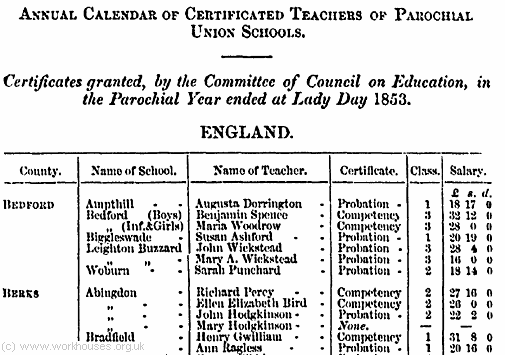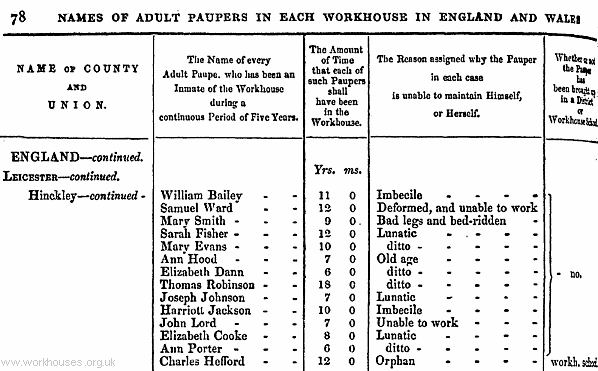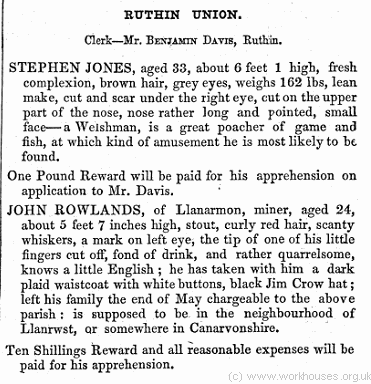Other Useful Workhouse-related Records
As well as the workhouse system's own records, census listings etc., a variety of other archive resources may be able to provide information relating to a particular workhouse, member of staff, or inmate.
Local newspapers often carried reports of Boards of Guardians meetings and any other newsworthy workhouse-related incidents that occurred. Advertisements for staff or the supply of goods also featured regularly.A major collection is available in the British Newspaper Archive.
Parliamentary Papers relating to the Poor Law Commissioners, Poor Law Board, and Local Government Board are extensive. Online versions can be consulted free at the National Archives at Kew and via many educational institutions. Although largely concerned with matters of finance, policy and operational matters, they occasionally contain material relating to individuals. For example, in the 1850s, the annual reports of the Committee of Council on Education listed the names of all the workhouse teachers achieving a particular certificated grade. In 1861, a parliamentary report on Paupers in Workhouses listed, by name, every workhouse inmate at that time who had spent more than five years in residence in a particular workhouse. The details of those listed can now be viewed on this website via a link at the end of each individual union's web page.

Part of the 1853 calendar of workhouse teachers gradings and salaries.
© Peter Higginbotham.

Part of the 1861 survey of paupers in the workhouse for more than five years.
© Peter Higginbotham.Trade Newspapers such as the Poor-Law Officers' Journal, Local Government Chronicle, and Knight's Official Advertiser, were aimed at union officers, workhouse staff etc. and often featured material on specific unions and workhouses. One particularly of interest to family historians is the Poor Law Unions Gazette published from 1857 to 1903. Its contents consisted entirely of detailed "wanted" descriptions of men who had deserted their families and left the union to take care of them. Access to the Poor Law Unions Gazette is now available via the British Newspaper Archive website.

Poor Law Unions Gazette extract, 1860.
© Peter Higginbotham.Emigration Records in various forms may help locate pauper ancestors who relocated to other countries such as Canada and Australia as part of organised emigration schemes, many of which focused on children. Notable amongst these is the Canadian Government's Home Children website which allows easy searching of a variety of Canadian immigration records from the period 1869-1930.
Other records such as ships' passenger lists may also be worth exploring. Some useful starting points include the TNA's Emigration and Emigrants guide, Cyndi's List, and some links on the Action Donation website.
Unless otherwise indicated, this page () is copyright Peter Higginbotham. Contents may not be reproduced without permission.


